Review: Notes on Blindness and Into Darkness – ‘truly remarkable’
July 15, 2016
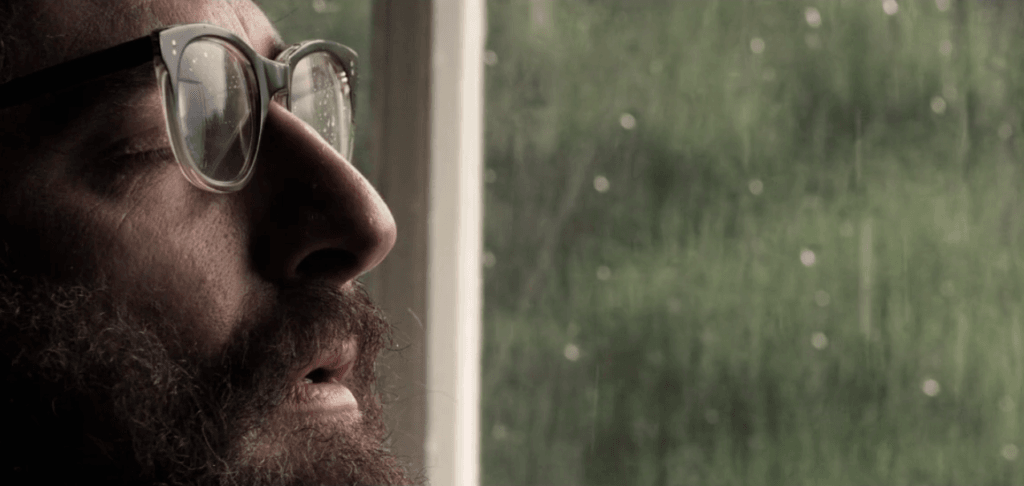
Contemplate losing the ability to see, and the effect is an overwhelming mixture of terror and incomprehension, followed by an eventual inevitable dismissal of the subject. It is simply easier, and perhaps necessary, to assume that it will never happen to you. Taken from the audio diaries of theologist John Hull, who went blind in 1980, Notes on Blindness is the dramatization of one man’s coping strategy during his journey into the unwelcome but unavoidable “state of deep blindness.”
Sight arguably dominates the way in which we perceive the world around us, a fact which is nowhere more apparent than at the cinema. Most people would agree that film is a predominantly visual medium. In fact, I spent a good deal of Notes on Blindness pondering the strangeness (perhaps even the irony) of communicating the experience of blindness through film before I even remembered that sight was by no means the only faculty in play.
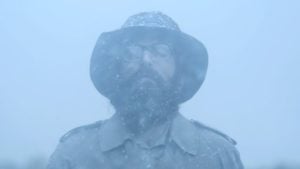 We tend to imagine blindness as a substitution of touch for sight: think of the blinded Gloucester’s “I see it feelingly” in King Lear, braille, or pretending to be ‘blind’ as a child and fumbling with outstretched hands from one piece of furniture to the next. But through Hull’s acute insight into his relationship with the external world, Notes on Blindness demonstrates with an incredible combination of visual and sonic beauty that, for him, the world is revealed and re-formed through sound. Sensitivity to sensory perception is the substance of the film, as images disintegrate and leap into focus with startling clarity, and even the click of a tape recorder button has layers of audible texture. Consciously or unconsciously, Notes on Blindness makes its viewers (and listeners) take stock of what is shared and what is unique to the blind and to the sighted; to us and to the man performing the action on the other side of the screen.
We tend to imagine blindness as a substitution of touch for sight: think of the blinded Gloucester’s “I see it feelingly” in King Lear, braille, or pretending to be ‘blind’ as a child and fumbling with outstretched hands from one piece of furniture to the next. But through Hull’s acute insight into his relationship with the external world, Notes on Blindness demonstrates with an incredible combination of visual and sonic beauty that, for him, the world is revealed and re-formed through sound. Sensitivity to sensory perception is the substance of the film, as images disintegrate and leap into focus with startling clarity, and even the click of a tape recorder button has layers of audible texture. Consciously or unconsciously, Notes on Blindness makes its viewers (and listeners) take stock of what is shared and what is unique to the blind and to the sighted; to us and to the man performing the action on the other side of the screen.
 At the start of one of his lectures, Hull confronts the problem of mutual understanding which is at the core of human relationships: is it ever truly possible to know another person, to experience the world as they experience it? Notes on Blindness does not shy away from these questions, but its answer (if indeed there is an answer) is wonderfully oblique. The film is founded on seemingly irreconcilable incongruities: a stunning visual depiction which details the experience of losing one’s sight, in which actors speak with voices other than their own, and yet it somehow coheres into a thoroughly beautiful whole. It is a work of immense human compassion and deep philosophical questions – a truly remarkable film.
At the start of one of his lectures, Hull confronts the problem of mutual understanding which is at the core of human relationships: is it ever truly possible to know another person, to experience the world as they experience it? Notes on Blindness does not shy away from these questions, but its answer (if indeed there is an answer) is wonderfully oblique. The film is founded on seemingly irreconcilable incongruities: a stunning visual depiction which details the experience of losing one’s sight, in which actors speak with voices other than their own, and yet it somehow coheres into a thoroughly beautiful whole. It is a work of immense human compassion and deep philosophical questions – a truly remarkable film.
Nationwide screenings of Notes on Blindness have been accompanied by a virtual reality (VR) experience entitled Into Darkness. This is a companion piece which attempts to take the viewer into Hull’s “world beyond sight” through an innovative use of interactive technology to simulate the internal experience of blindness, accompanied by Hull’s original recordings.
Reviewed at Picturehouse at National Media Museum. Showing at Hyde Park Picture House on 31st July and 4th August.
Filed under: Film, TV & Tech
Tagged with: Hyde Park Picture House, Into Darkness, Notes on Blindness, Picturehouse at National Media Museum, Ruth Hobley
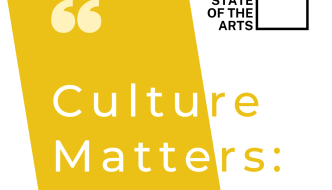
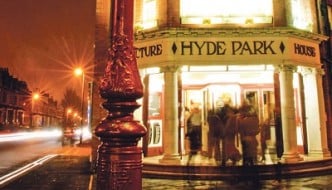
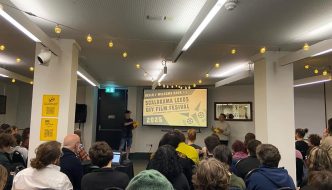
Comments